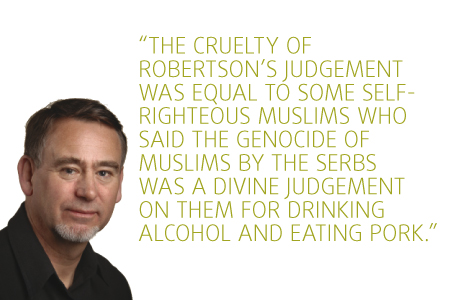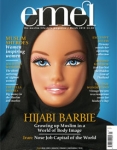
Entering the Garden
Issue 66 March 2010
As we grow in our cynicism and despondency, there has to be light at the end of the tunnel – for everyone.
As I sat down to write this essay at the end of January, it might have been all too easy to have been overwhelmed by pessimism in the face of so many shocking events, so I made sure that the first words I wrote down were those of its title, “Entering the Garden,” to remind me of its hopeful and beautiful destination. So bear with me, as I grapple momentarily with the habitually demoralising offerings in the media. There is a Garden too, and I hope to glimpse it with you.
As Anthony Seldon writes in his recent book Trust: How We Lost it and How to Get it Back, a forensic analysis of ten essential areas where trust in national life has broken down, “lack of trust and cynicism seem to be widespread in Britain as we draw to the end of 2009. This has been a year that will fill pages of history books with stories of greed, corruption, incompetence and misconduct.”
And to that litany of vices, reflecting what many consider to be a lack of political leadership on pressing moral issues of social and economic justice, we could increase our despondency by adding more recent and immediate horrors: the catastrophic loss of life in the Haitian earthquake, and the jailing of the young brothers from Edlington for the protracted and vicious attack on two boys involving torture and sexual humiliation.
As for Haiti, we can only gasp at the shocking lack of compassion of the American religious leader Pat Robertson, who announced the day after the earthquake that Haiti had been ‘cursed’ by a ‘pact with the devil’ (and therefore presumably deserved the disaster which had befallen its people), a disgraceful remark decisively rebuffed in a beautiful statement by Ingrid Mattson, President of the Islamic Society of North America, who highlighted the very best of Islamic humanitarian values. And, lest we fall into uncritical self-congratulation, let me record that the cruelty of Robertson’s judgement reminded me of something I had been equally shocked and disgusted to hear from certain self-righteous Muslims during a visit to Sarajevo after the end of the siege: that the barbaric genocide of Muslims by the Serbs was a divine judgement on them for drinking alcohol and eating pork!
As for the scandal of the boys from Edlington, themselves the victims of a dysfunctional, violent and abusive home life, well, can we not regard it as definitive proof of our ‘broken society’, a graphic illustration of a subculture of crime, violence, ill-health, squalid living conditions and despair, occupied by an impoverished ‘underclass’ which had been exposed in 1997 in Nick Davies’ harrowing book Dark Heart: The Shocking Truth about Modern Britain. Indeed, the newspapers today are full of the ‘broken society’ debate, with the Archbishop of Canterbury weighing in with a speech in the heart of New York’s financial district claiming that the whole world, and not just Britain, is broken.
Nick Davies had blamed his ‘shocking truths about modern Britain’ on poverty as the prime factor. His diagnosis has been questioned, many preferring to see our ‘broken society’ as the consequence of many interrelated factors, not least the decline in moral and spiritual values. But inequality is clearly a major issue, prominently highlighted with the publication of a 460-page government-commissioned study, An Anatomy of Economic Inequality in the UK, by the National Equality Panel. This study has brought “fresh confirmation of the pervasive and profound inequality in Britain,” a nation in which “divisions between the rich and poor in the UK are wider now than 40 years ago,” and in which “the richest 10% are more than 100 times as wealthy as the poorest 10%.” Household wealth of the top 10% of the population is £853,000 and above or 100 times more than the wealth of the poorest 10%, which is £8,800 or below. Only the USA shows greater disparity in the distribution of wealth. “Among 21 developed market democracies, we found that Britain does worst on child wellbeing and badly on teenage births, imprisonment, drug abuse, trust, obesity, social mobility and mental illness.”
And if these depressing findings are insufficient to feed our insatiable appetite for bad news, we might get a special frisson of schadenfreude from the startling news that an increasing number of fans of James Cameron’s record-breaking 3-D movie Avatar have suffered depression and even contemplated suicide after rejoining the real world. Apparently, the “fully immersive” experience of watching the film is so absorbing, and the fantasy world depicted so vivid and hyper-real, that nothing in life outside the local multiplex can possibly compare. As an article in The Times speculates, could it be that “the real Pandora is not Cameron’s blissed-out planet but a Pandora’s Box of disaffection opened to impressionable audiences?”
There are worthy responses from an Islamic perspective to all the issues I have raised, and these include the responsible critiquing of social and cultural ills, striving to repair society for the common good, and engaging in charitable deeds, but my intention here is to highlight the one response which goes to the very heart of our spiritual tradition, and that is the over-riding principle of Divine Mercy, expressed in the hadith qudsi, “My Mercy precedes my Wrath.” Given the unremitting exposure of imperfection in so much of what we see and read, it becomes almost an automatic reaction to point the finger of judgement, either at others or, more insidiously, at ourselves for the culture of blame and retribution that infects our own souls too. Increasingly driven by the imperative to achieve and to find perfection in the world, we can be even harder on ourselves and our perceived sins, failures and inadequacies.
I offer you therefore something which has moved me more profoundly than almost any other holy text I have encountered – the Hadith of the Intercession (al-tahawwul or al-taqallub fi al-suwar) recorded in almost identical versions in the Sahih of Muslim and Bukhari. I am deeply indebted to the translation by James Morris, only simplifying and adapting it where appropriate in the extract which follows:
The people of faith plead with God, on the Day of the Rising, on behalf of their friends who are in the Fire. “O our Lord,” they implore, “those friends of ours used to fast with us, and they were praying and they were loving.”
And God says, “Bring out whoever you knew among them.” So they bring out a great many people and they say, “O our Lord, there does not remain in the Fire a single one of those whom You ordered us to bring out.”
“Return, all of you,” He says, “and bring out anyone in whose heart you find even a dinar’s weight of good.” [A dinar is a tiny feather-weight gold coin.] So they bring out a great many people and they say, “O our Lord, we did not leave in the Fire a single one of those whom You ordered us to bring out.”
And God says, “Return, all of you and bring out anyone in whose heart you find even half a dinar’s weight of good.” So they bring out a great many people and they say, “O our Lord, we did not leave in the Fire a single one of those You ordered us to bring out.”
And then God says, “Return, all of you, and bring out anyone in whose heart you find even an atom’s-weight of good.” [This echoes the Qur’an 99:7 - And so, he who shall have done an atom’s weight of good, shall behold it.] So they bring out a great many people, and they say, “O our Lord, we didn’t leave in the Fire any good at all.”
And as he recounted these words of the Prophet, Abu Sa‘id al-Khudri said, “If you don’t believe what I’m recounting in this hadith, then read, if you will, the Qur’anic verse, Surely God does not do even an atom’s weight of wrong, and if it be a good and beautiful action, He multiplies it many times, and He brings from His Presence an immense Reward.” (4:40)
Then God says, “The angels have interceded, and the prophets have interceded, the people of faith have interceded. Now none remains but the Most Loving and Compassionate of all.” (Al-rham al-Rahimin, alluding especially to Qur’an 12:92: No reproach shall be uttered today against you. May God forgive you your sins: for He is the most merciful of the merciful.)
Then He grasps a handful from the Fire, and He brings out of it a group of people who never did any good at all, who have already returned to charred ashes. Then He throws them into a river in one of the openings of the Garden, a river that is called “the River of Life.” And they come out of that River like a seed that grows out of the muddy silt carried along by the flood: haven’t you seen how it grows up next to a rock or a tree, green on the side facing the sun, and paler on the shady side? They will come out like pearls, with seal-rings on their necks. Then the people of the Garden recognise them: “These are those who have been set free by the All-Compassionate, Who has admitted them into the Garden without any good deed that they did or sent before them.” Then He says, “Enter the Garden - whatever you see there is yours.”
Bookmark this |
|
Add to DIGG |
|
Add to del.icio.us |
|
Stumble this |
|
Share on Facebook |
|
Share this |
|
Send to a Friend |
|
Link to this |
|
Printer Friendly |
|
Print in plain text |
|


Comments
0 Comments